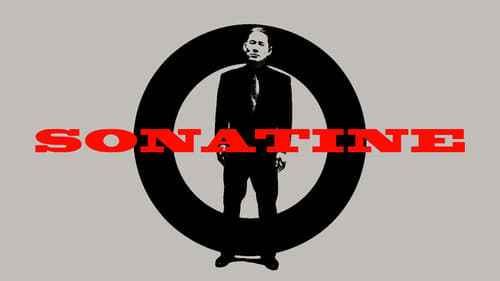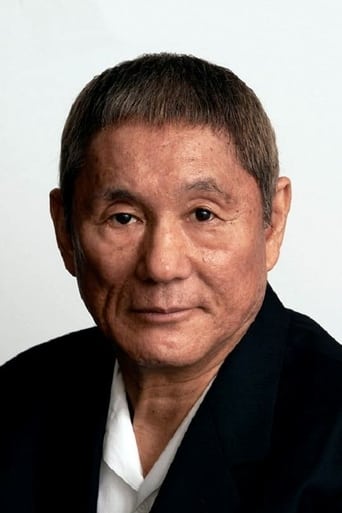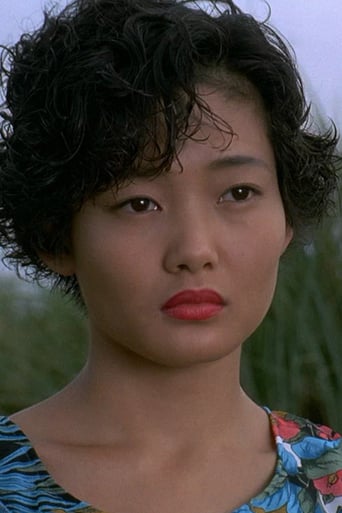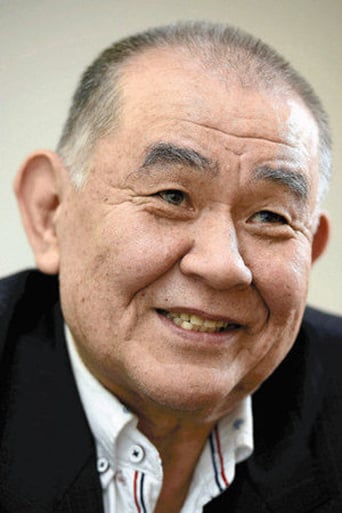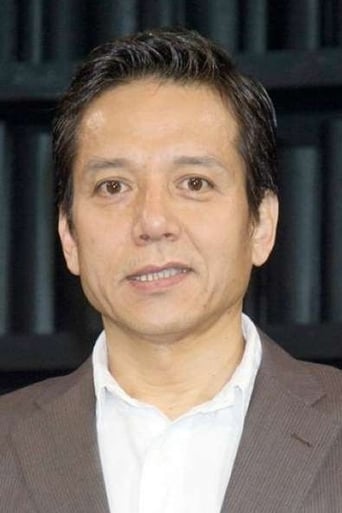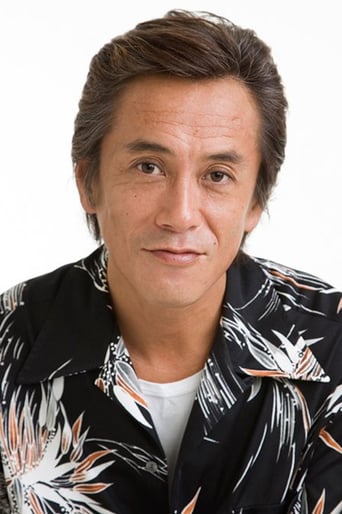BlazeLime
Strong and Moving!
SnoReptilePlenty
Memorable, crazy movie
TaryBiggBall
It was OK. I don't see why everyone loves it so much. It wasn't very smart or deep or well-directed.
Curt
Watching it is like watching the spectacle of a class clown at their best: you laugh at their jokes, instigate their defiance, and "ooooh" when they get in trouble.
zardoz-13
Takeshi Kitano writes and directs his gangster films like Ernst Hemingway wrote his prose. "Sonatine" is a lean, mean movie about yakuza gunsels roughing it in Okinawa on a mission to settle a dispute. There is a lot of violence, but it's not the kind that makes you want to go out and shoot somebody. The difference between an action shoot'em up and Kitano's "Sonatine" is that everything is matter of fact, ordinary in a way that makes everything seem doubly realistic. These gangsters don't pose and shoot; they shoot. If Sergio Leone perpetuated the 'looks can kill' stare, then Kitano has created the 'look that wonders.' These tight-lipped tough guys say more with their glassy-eyed stares than they would if they were exchanging papers of meaningless dialogue. You have to use your imagination with "Sonatine" and Kitano forces you with gunfights where you see muzzle flashes in windows or on faces like a artsy light show. Some people will complain that the 94-minute melodrama is humdrum, but it is far from boring. If there were ever a movie about violence that shows how meaningless a life of violence is, "Sonatine" qualifies for that honor. Kitano delivers another hypnotic performance.
bob the moo
Murakawa is a member of the Yakuza with his own territory, which is very profitable despite his tiredness with the violence and unrelenting grimness that accompanies his "job". When his boss instructs him to go to disputed territory in Okinawa, Murakawa fears the worst, knowing the last time saw him lose several men, but goes anyway. When the supposed "negotiations" are clearly not going to happen, he has already lost several men and has no option but to make a strategic retreat ahead of further action. Holding up in a beach house on the quiet coastline, Murakawa and his men start to enjoy the freedom away from their daily lives, but the reality of their situation cannot be ignored forever.Playing a similar character to other films, Kitano uses Sonatine to inject humour and joy de vivre into the mix while still delivering on the themes and with the style we have come to expect. The plot with this film offers a period away from the violence that is not so much narrative as physical and Murakawa and his men hold up on a beach to regroup and decide their course of action. It is in this period of the story where Murakawa's tiredness over his life becomes actions rather than just something he says (which was quite an unusually clumsy line to find in this film early on). Where other films have depicted this tiredness as a deadness or stillness in their characters during moments of violence, Sonatine goes beyond this and also has the characters responding to the addition of more to their lives. I can understand why some viewers (happily not many) have seen the beach-set material to be "nothing happening" but to me it is the most important part of the film as it provides more to the characters and makes the rest of the film that bit more tragic.Of course it does the flip side of this as well, which is the deadness and apparent lack of emotion, because it is required to round the character out and make the conclusion such a natural and understandable thing. Those familiar with Kitano's other films will be used to the style and it works to very good effect here, particularly in gun battles where the "winners" only seem slightly more alive than those that are dead – an aspect that may annoy those expecting John Woo action but not to those that understand the characters and how they are being presented (although I will be honest and say that some moments are really a touch too static even by his standards). To the characters violence is something that has become accepted as part of their lives and not in a macho way but in a "beaten-down" fashion. Outside of this the visual style is typically Kitano and I do really like how unusual the static camera and unusual shot-selection works, opening scenes focusing on a character for a few seconds before anything happens etc. It forces the viewer into a mindset of patience that suits the story.In his oft-played role, Kitano is really good as he understands his character and, with minimal expression helps the audience do so too. I did enjoy seeing more playfulness come from his creation in this film and he rose to that also – always feeling like the same character and not just like he has flicked a switch to become "fun". He is well supported by his fellow Yakuza, who are not as far gone but do also display a tangible sense of freedom when they find themselves on the beach – still engaging in acts that "normal" people would deem violent, but at the same time also recognisable as moving away from the nihilistic nurture of their "day jobs".Currently I am trying to make an effort to watch less of whatever happens to be released in any given week but get back through work that I have not seen for decades or have never seen and should. This has meant that I have seen about four or five Kitano films over the last month or two and I do feel that Sonatine is the one where the themes and style that he so often employs come together in the most effective and meaningful way. The stilted and superficially cold style may put some people off if they do not know what to expect but this is not a significant obstacle to overcome for what is an impressive, stylish, engaging and creative film.
Doug Galecawitz
i gotta say i was a bit disappointed with this film. i thought i was in for a good yakuza film but a lot of it was plodding and dull. i understand and support the concept of adding a fresh perspective or something unexpected to a tired genre but in the case of the juxtaposing scenes of violence with scenes in which the mobsters play like children i simply found it distracting and wasteful. the movie centrally focuses on the main hero who is built up slowly through the movie but then any building tension is undermined by meaningless shenanigans. all of the other characters come of as even less then one dimensional, and the scenes of violence are filmed in a way that makes them look amateur night.could have been better 5 out of ten
andrewsterling222
This film is one of my all time favourites for chilling out to at night. The cinematography is beautiful, making full use of the lovely beaches of Okinawa, and the shots tend to linger on a face or a car driving off into the distance, which creates a sort of hypnotic effect on the viewer. The score is beautifully composed by Joe Hisaishi, who also gave you the music for Spirited Away. Personally, I think that the film wouldn't be half as good if it wasn't for the music.Plot wise, it's quite basic. A group of Yakuza are assigned to Okinawa to make peace with a rival clan. Things go horribly wrong and they take shelter in a disused beach hut. I think the main subject the film deals with is what guys do to make the most of a bad situation. There is an underlying theme of helplessness and pessimism......Maybe self realisation. Although there is never any feeling shown by the main character, you get a perfect picture of the characters state through Kitano's relaxed acting style. He reminds me of an oriental mix of DeNiro and Keitel.All in all, a classic film that speaks in whispers.Andy




